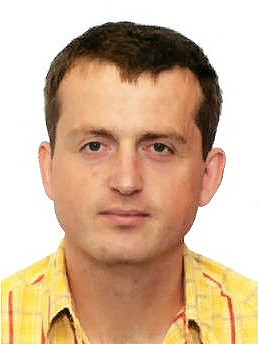Ischemic heart disease is the main cause of mortality worldwide. We study cardiac tolerance to injury caused by acute oxygen deprivation from the molecular level to the whole organism using animal models. Our research is focused mainly on the study of mechanisms that underlie:
- high cardiac tolerance to injury early ontogeny,
- increased cardiac tolerance induced by adaptation to chronic hypoxia and regular exercise training,
- permanent consequences of early developmental interventions for cardiac tolerance in adulthood,
- and altered cardiac tolerance associated with various pathological states.
Further we study heart development with special emphasis on the cardiac conduction system. Our current research is focused on the following projects:
- elucidating cardiac conduction system formation with phylogenetic approaches,
- dynamic imaging methods for cardiac conduction system,
- and development of new methods for quantitative analysis of fibrous structures to study branching patterns of the coronary vessels and cardiac conduction system.
13th conference New Frontiers in Basic Cardiovascular Research
Projects
This projects aims to obtain new insights into cardiac conduction system formation through comparative morphological and physiological approach.
More
The immature heart is highly tolerant to ischemic injury, but chronic oxygen deficit during early ontogeny may have negative consequences that persist till adulthood. We study mechanisms responsible for developmental changes of cardiac ischemic tolerance.
More
Systemic hypertension is a major risk factor of ischemic heart disease. However, it can also stimulate mechanisms that protect the heart against acute oxygen deprivation. We study the effects of various forms of hypertension on cardiac ischemic tolerance.
More
Prolonged exposure to hypoxic environment leads to adaptation which is associated with improved cardiac tolerance to acute oxygen deprivation. We study molecular mechanisms underlying the cardioprotective effects of chronic hypoxia on various manifestations of ischemic injury.
More
Publications
Tibenská; V. - Marvanová; A. - Elsnicová; B. - Hejnová; L. - Vebr; P. - Novotný; J. - Kolář; František - Nováková; Olga - Žurmanová; J.M.
The cardioprotective effect persisting during recovery from cold acclimation is mediated by the beta(2)-adrenoceptor pathway and Akt activation
.
Journal of Applied Physiology. 2021; 130(3); 746-755
.
IF = 3.531
[ASEP]
[
doi
]
Petrovová; E. - Tomco; M. - Holovská; K. - Danko; J. - Krešáková; L. - Vdoviaková; K. - Simaiová; V. - Kolvek; F. - Horňáková; P. - Toth; T. - Zivcak; J. - Gal; P. - Sedmera; David - Luptáková; L. - Medvecký; L.
PHB/CHIT Scaffold as a Promising Biopolymer in the Treatment of Osteochondral Defects-An Experimental Animal Study
.
Polymers. 2021; 13(8)); 1232
.
IF = 4.329
[ASEP]
[
doi
]
Ošťádal; Bohuslav - Ošťádalová; Ivana - Szárszoi; O. - Netuka; I. - Olejníčková; Veronika - Hlaváčková; Markéta
.
Sex-dependent effect of perinatal hypoxia on cardiac tolerance to oxygen deprivation in adults
.
Canadian Journal of Physiology and Pharmacology. 2021; 99(1); 1-8
.
IF = 2.273
[ASEP]
[
doi
]
Olejníčková; Veronika - Kočka; M. - Kvasilová; A. - Kolesová; Hana - Dziacky; A. - Gidor; T. - Gidor; L. - Šaňková; B. - Gregorovičová; Martina - Gourdie; R. G. - Sedmera; David
.
Gap Junctional Communication via Connexin43 between Purkinje Fibers and Working Myocytes Explains the Epicardial Activation Pattern in the Postnatal Mouse Left Ventricle
.
International Journal of Molecular Sciences. 2021; 22(5)); 2475
.
IF = 5.923
[ASEP]
[
doi
]
Neckář; Jan - Alánová; Petra - Olejníčková; Veronika - Papoušek; František - Hejnová; L. - Šilhavý; Jan - Behuliak; Michal - Bencze; Michal - Hrdlička; Jaroslav - Vecka; M. - Jarkovská; D. - Švíglerová; J. - Mistrová; E. - Štengl; M. - Novotný; J. - Ošťádal; Bohuslav - Pravenec; Michal - Kolář; František
.
Excess ischemic tachyarrhythmias trigger protection infarction in rats
.
Clinical science. 2021; 135(17); 2143-2163
.
IF = 6.124
[ASEP]
[
doi
]
Show more


















